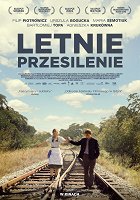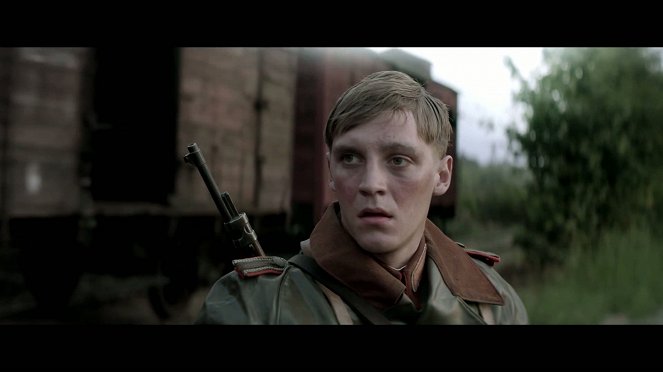Ohjaus:
Michał RogalskiKäsikirjoitus:
Michał RogalskiKuvaus:
Jerzy ZielinskiNäyttelijät:
Jonas Nay, Filip Piotrowicz, Gerdy Zint, Steffen Scheumann, André Hennicke, Maria Semotiuk, Bartlomiej Topa, Agnieszka Krukówna, Krzysztof Czeczot (lisää)Juonikuvaukset(1)
1943. Polish countryside. Germany has begun sending younger and younger recruits to war. That is how Guido, a sensitive 17-year-old, finds himself in Poland. While serving near a small village, he tries to escape the brutality of the war in the attic of the post where he listens to forbidden jazz records and dreams of better times. Meanwhile, Romek, a local Polish boy, tries to help his single mother by working as a railway engineer's assistant and win the heart of Franka, the daughter of the well-to-do farmer. While helping drive the locomotive, Romek makes regular stops at an abandoned train station where German trains to death camps dispose of suitcases and other personal items of the Jewish victims. Unaware of the scope of the tragedy they represent, the items make little impression on Romek. When he salvages a discarded grammophone, fate brings him, Franka and Guido together. That one moment will change each of their lives forever. Then Romek meets Bunia, a Jewish girl who has managed to escape one of the death trains and he becomes her only hope for survival. The unlikely connection of these four leads to a series of tragedies. Who will survive is not entirely in their hands. (Montreal World Film Festival)
(lisää)Arvostelut (1)
The Poles just can’t leave well enough alone. Others kick the hornet nest and after a few stings they admit that the Germans have learned their lesson. But not the Poles. They keep beating a dead horse and blame the Germans for WWII, sometimes taking a jab at their own nation in the process. They’re a real piece of work. The basic idea behind Summer Solstice is that no nation is good or evil. There are just good and bad people. This film is a success; had it contained any particularly memorable moments, I might’ve given it the full rating.
()

